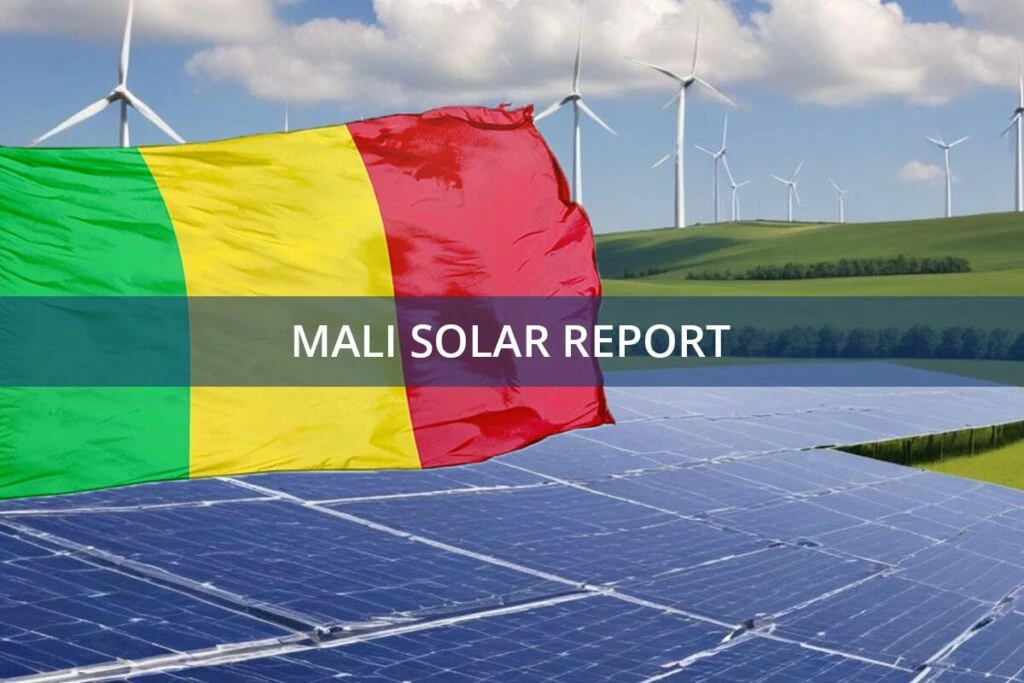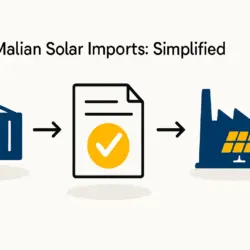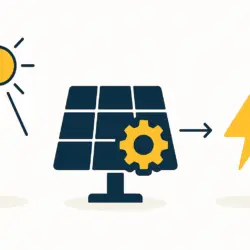Fekola Solar Plant Expansion: Enhancing Capacity and Efficiency at the Fekola solar plant
B2Gold has successfully completed the Phase 2 expansion of its Fekola solar plant in Mali, a significant step forward in sustainable mining operations. Officially completed as of March 18, 2025, this expansion increases the plant’s capacity from 30.4 MWac to a substantial 44.8 MWac, further cementing its role as a pioneering renewable energy project in the region.
The expansion is projected to save an additional 2.8 million liters of heavy fuel oil (HFO) annually, translating to a reduction in carbon emissions of 7,100 tonnes each year. The upgraded facility now features 127,050 solar panels, a testament to the intricate solar panel manufacturing process required for such large-scale installations. This solar array is supported by an impressive 26 MWac of battery storage.
The Fekola solar plant was initially launched in 2020 with a 30.4 MWac capacity, making it West Africa’s largest off-grid solar and battery storage system at the time. It was meticulously designed to integrate with the Fekola mine’s existing 64 MW HFO power plant and included a 17.3 MW/15.4 MWh battery energy storage system.
This project marked a significant milestone for B2Gold as its first power plant to incorporate renewable energy. The combination of the solar and battery system with the HFO plant created a resilient hybrid system. Even before the expansion, this setup reduced the Fekola mine’s total HFO consumption by 13.1 million liters annually and cut carbon emissions by an impressive 39,000 tonnes per year.
Cost Savings and Environmental Impact of the Fekola solar plant
The financial and environmental benefits of the solar plant have been substantial. In 2023 alone, the Fekola Mine saved $9.0 million by leveraging solar power, which generated 54.9 GWh of clean energy. This contributed to a highly competitive overall power generation cost of $0.16/kWh, a figure that showcases the economic viability of renewable energy in industrial applications. For those interested in the economics of such projects, understanding the solar panel manufacturing plant cost breakdown provides deeper insight.
The recent expansion is set to unlock even greater savings by further displacing expensive and carbon-intensive HFO. This significant reduction in carbon emissions directly aligns with B2Gold’s commitment to sustainable and responsible mining practices.
Furthermore, the enhanced battery storage capacity has improved the plant’s operational efficiency. The batteries are crucial for stabilizing the power grid, smoothing out the intermittency of solar generation, and ensuring a consistent flow of energy to the mine. This reliability is paramount for maintaining uninterrupted operations at the Fekola mine, which depends on a steady power supply.
B2Gold’s Commitment to Sustainability through the Fekola solar plant
The Fekola solar plant is a cornerstone of B2Gold’s strategy to minimize its environmental footprint. The company’s focus on integrating renewable energy into its operations is clearly demonstrated by this successful expansion, which serves as a testament to its commitment to innovation.
B2Gold continues to explore other renewable energy projects to further reduce its reliance on fossil fuels, and the success at Fekola could serve as a powerful model for future initiatives across its portfolio.
This project is also hugely significant for Mali, showcasing the immense potential of renewable energy in the region. It is a powerful example of how solar power can be a reliable and cost-effective energy source for demanding industrial operations. The Fekola plant is part of a broader movement, as the nation sees a surge in clean energy investments, including the development of a landmark 100 MWp Safo solar power plant and an ambitious 200 MW plant in partnership with Russia. These developments reflect a larger continent-wide trend, contributing to Africa’s solar boom and a shift toward energy independence. As the country’s renewable sector grows, insights from the Mali solar panel manufacturing report will be crucial for understanding local market dynamics.
B2Gold’s expansion of the Fekola solar plant is a major achievement. The increased capacity will deliver significant fuel savings and emission reductions, highlighting the company’s dedication to sustainable mining. The success of this project not only benefits the company but also helps pave the way for more renewable energy initiatives across West Africa.
If you’re inspired by how solar technology is transforming industries and want to learn more about the fundamentals, consider enrolling in our free e-course to deepen your understanding of solar panel manufacturing.



